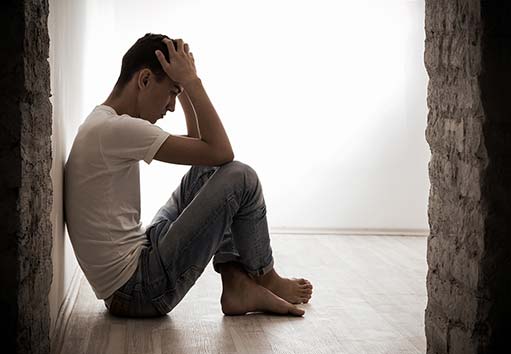Depression Overview • Depression Diagnosis • Depression Treatments
Diagnosis of any mental illness needs to be done with a Mental Health
Professional (MHP) trained in diagnosis, which maybe a Licensed Clinical Social
Worker, Licensed Psychologist or a Psychiatrist.
In diagnosing depression in an individual with diabetes it is important that the
client/patient advocate for him or herself by tell the MHP evaluating them that
they have diabetes. Don’t wait to be asked, be honest with them and upfront, tell
them if your blood sugars are out of control and what symptoms that may cause.
 If your psychotherapist or psychiatrist is unfamiliar with the symptoms of high
If your psychotherapist or psychiatrist is unfamiliar with the symptoms of high
blood sugar, inform them what happens to you when your blood sugar is high. If
your mental heath professional is still unsure about the impact of blood sugars
refer them to speak with your certified diabetes educator or endocrinologist.
Make sure to sign a release allowing them to talk to your endocrinologist to
coordinate care.
All this will help the MHP rule out that your blood sugar control isn’t the cause of the depression.
Depression Assessment
The initial assessment is performed by a MHP, creating a Bio-Psycho-Social
Assessment that evaluates all aspects of an individual’s life, which assists in the
diagnostic process. As part of the process the MHP will conduct a Differential
Diagnosis.
The Differential Diagnosis takes into account that the depression might be a
result of some specific extrinsic factor such as drug abuse, various medications,
or general medical conditions like hypothyroidism. Depending on various factors
the MHP may have you get screened for a specific extrinsic factor to rule it out as
the cause of the depression.
The Diagnostic Static Manual (DSM-IV-TR) is the primary source in diagnosing
mental health disorders. It is used to rule out symptoms and other criteria like
length of symptoms need to be meet before a diagnosis can be made.
Criteria for Major Depressive Episode and Major Depressive Disorder:
-
A. At least five of the following symptoms have been present during the same 2-week period and represent a change from previous functioning: at least one of the symptoms is either 1) depressed mood or 2) loss of interest or pleasure.
- Depressed mood most of the day, nearly every day, as indicated either by subjective report (e.g., feels sad or empty) or observation made by others (e.g., appears tearful)
- Markedly diminished interest or pleasure in all, or almost all, activities most of the day, nearly every day (as indicated either by subjective account or observation made by others
- Significant weight loss when not dieting or weight gain (e.g., a change of more than 5% of body weight in a month), or decrease or increase in appetite nearly every day
- Insomnia or hypersomnia nearly every day
- Psychomotor agitation or retardation nearly every day (observable by others, not merely subjective feelings of restlessness or being slowed down)
- Fatigue or loss of energy nearly every day
- Feelings of worthlessness or excessive or inappropriate guilt (which may be delusional) nearly every day (not merely self-reproach or guilt about being sick)
- Diminished ability to think or concentrate, or indecisiveness, nearly every day (either by subjective account or as observed by others)
- Recurrent thoughts of death (not just fear of dying), recurrent suicidal ideation without a specific plan, or a suicide attempt or specific plan for committing suicide
- The symptoms do not meet criteria for a mixed episode.
- The symptoms cause clinically significant distress or impairment in social, occupational, or other important areas of functioning.
- The symptoms are not due to the direct physiological effects of a substance (e.g. a drug of abuse, a medication) or a general medical condition (e.g., hypothyroidism).
- The symptoms are not better accounted for by bereavement, i.e., after the loss of a loved one, the symptoms persist for longer than 2 months or are characterized by marked functional impairment, morbid preoccupation with worthlessness, suicidal ideation, psychotic symptoms, or psychomotor retardation.
If you believe you might be depressed and would like some help. Please contact Eliot LeBow LCSW, CDE at 917-272-4829 to schedule your first Diabetes-Focused Therapy Session.
Depression Overview • Depression Diagnosis • Depression Treatments
© 2011-2026 Eliot LeBow L.C.S.W., C.D.E., The information on this server including all images is proprietary and comprises legally protected subject matter belonging to psychotherapist Eliot LeBow, and is displayed on the basis of viewing only. All use, reproduction, and disclosure is prohibited without the prior consent of Diabetes Focused Therapist Eliot LeBow, including all registration marks: ® Diabetes Focused Psychotherapy, ® Helping People With Diabetes Thrive!, ® DiabeticTalks, ® DiabeticMinds, ® The Diabetic Diary. All rights reserved.
Office Locations: 323 West 96th street, NYC & Online Email: eliot.lebow@gmail.com • (917) 272-4829
Psychotherapist & Diabetes Specialist : Servicing all of New York State including Manhattan, Brooklyn, Queens, Staten Island, Long Island, and Westchester County.
